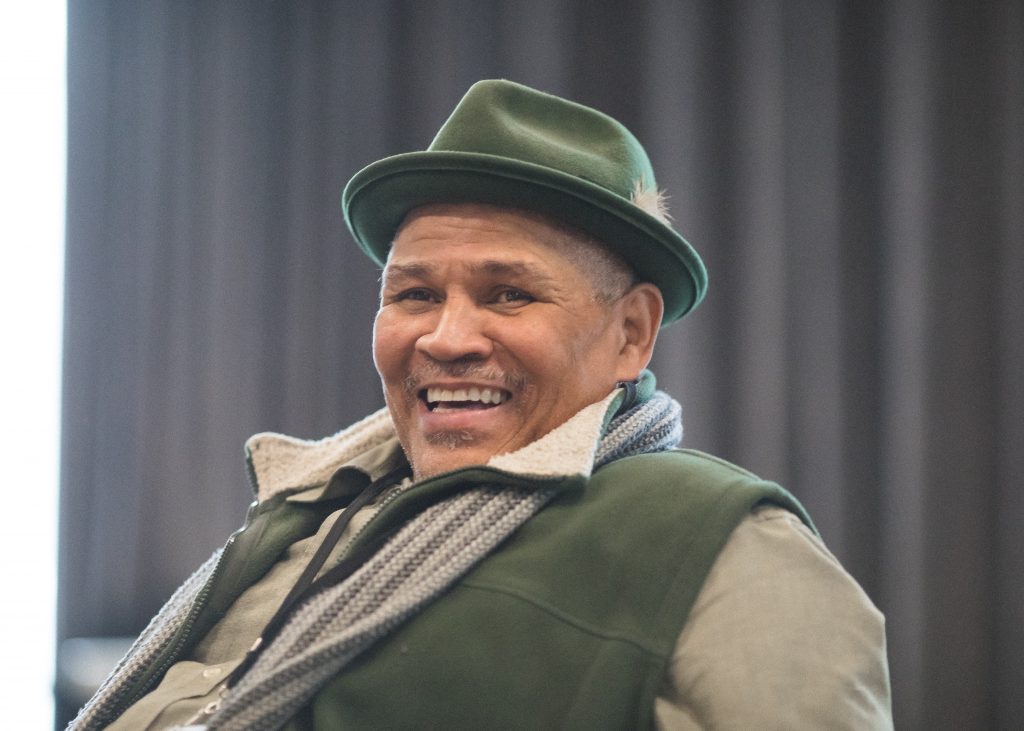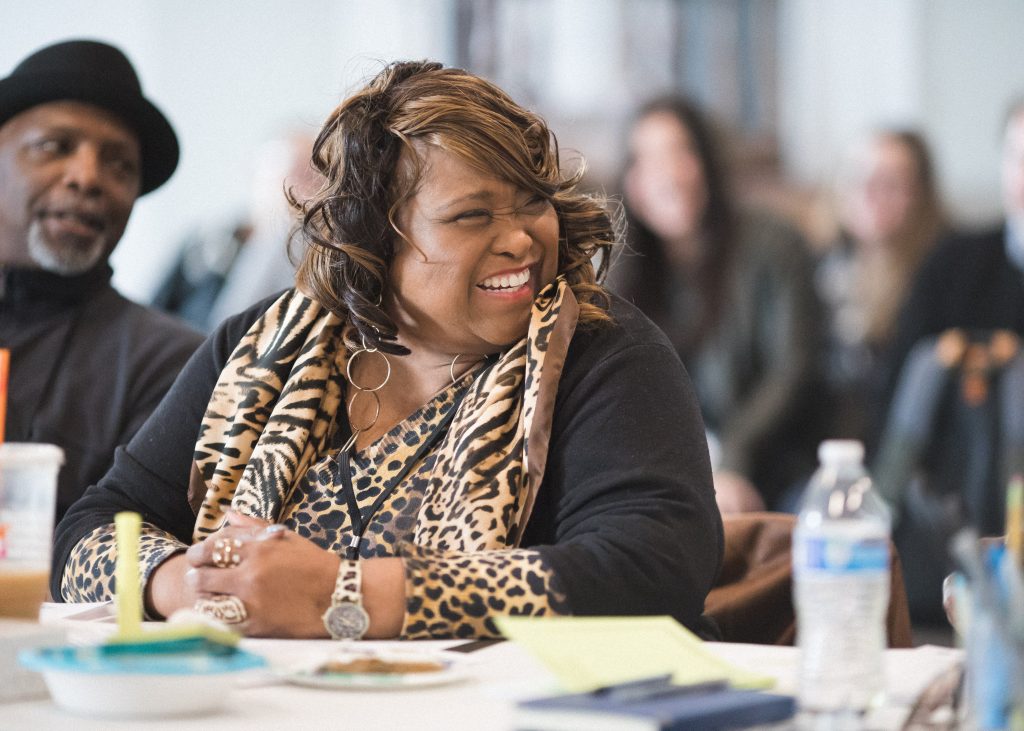There are so many reasons to be excited about this production of Ma Rainey’s Black Bottom it’s hard to know where to begin. As a theatre in which the word is the primary source of inspiration, we should start with the playwright. August Wilson justly earned his place in the pantheon of great American writers for the theatre with his astonishing historic cycle of dramas chronicling the experience of African Americans over the course of the 20th century. With soaring language, richly drawn characters, humor, pathos and superbly structured narratives, he brings the racial history of this nation into the hearts and souls of audiences. Ron OJ Parson is, in my estimation, the nation’s premier interpreter of Mr. Wilson’s work. Every time I see a fresh production of a Wilson play directed by Ron, I see the play as if for the first time. There is a fresh vibrancy in his realizations that brings the story to life in ways that feel immediate and utterly relevant to the times. Furthermore, he has assembled a simply astonishing cast to bring Ma Rainey to life in the Nichols Theatre.
We all have blues and jazz albums in our collections. Ma Rainey’s Black Bottom reminds us how many of those albums came into fruition. I was flying home to Chicago from New York a decade or so ago. As is my usual habit when I fly, I try to lose myself in a book as I tend to find that the more I dwell upon the nature of what it actually means to be 35,000 feet or so above the earth in a small metal tube loaded with highly explosive fuel, the less comfortable I am with the paradigm. A short while into the flight when I got up to use the restroom I realized that the great blues singer Mavis Staples was sitting in the row behind me. There’s an unspoken rule in New York that you allow celebrities their own space but eventually, the silence was broken by someone asking her if she was indeed Mavis Staples. She acknowledged the fact and to the delight of all around her answered a few questions with grace and generosity. Eventually someone asked her jokingly why she was flying economy. The answer wasn’t funny. She explained carefully that despite her prolific recording career, she had seen little of the profits from her recordings. The exploitation of black artists by primarily white institutions and individuals has been endemic throughout history. Some of it is motivated by greed and some by ignorance. Regardless, the end result is the perpetuation of systemic racism.

Pictured: Ron OJ Parson. Photo by Joe Mazza—Brave Lux. Pictured: Felicia P. Fields. Photo by Joe Mazza—Brave Lux.
Pictured: Felicia P. Fields. Photo by Joe Mazza—Brave Lux.
Conversations about race are still at the forefront of the national conversation and rightly so. We only have to look at our own city, divided predominantly along racial lines, in order to see how problematic and real the issues are. And yet so much of the dialogue we are engaging in can feel overwhelming and frustrating, and as with all significant challenges that emerge from the state of being human, they are incredibly complicated. Furthermore, despite the media’s (and especially social media’s) attempts to oversimplify the issues, they remain complex and gray in the way that being alive is complex and gray. And this is where art comes into play. Great art thrives in complexity and shades of gray. Artistic expression gives us the opportunity to have a personal engagement with issues that can seem distancing and overwhelming. Art allows us to approach epic dialogues from a personal place and when we can approach the great concerns of our times with empathy and nuance, we have a greater hope of dealing with them.
Thank you for continuing to join the conversations at Writers Theatre. We’re very lucky to have you in our audience. Leaning forward and engaging means active participation with the conversations on our stages. Laugh, cry, gasp and, best of all, recognize that the person next to you might be having a different experience—relish that moment! That’s one of the many wonderful aspects of going to the theatre that allows us to celebrate the diversity of human experience.


No comments yet.